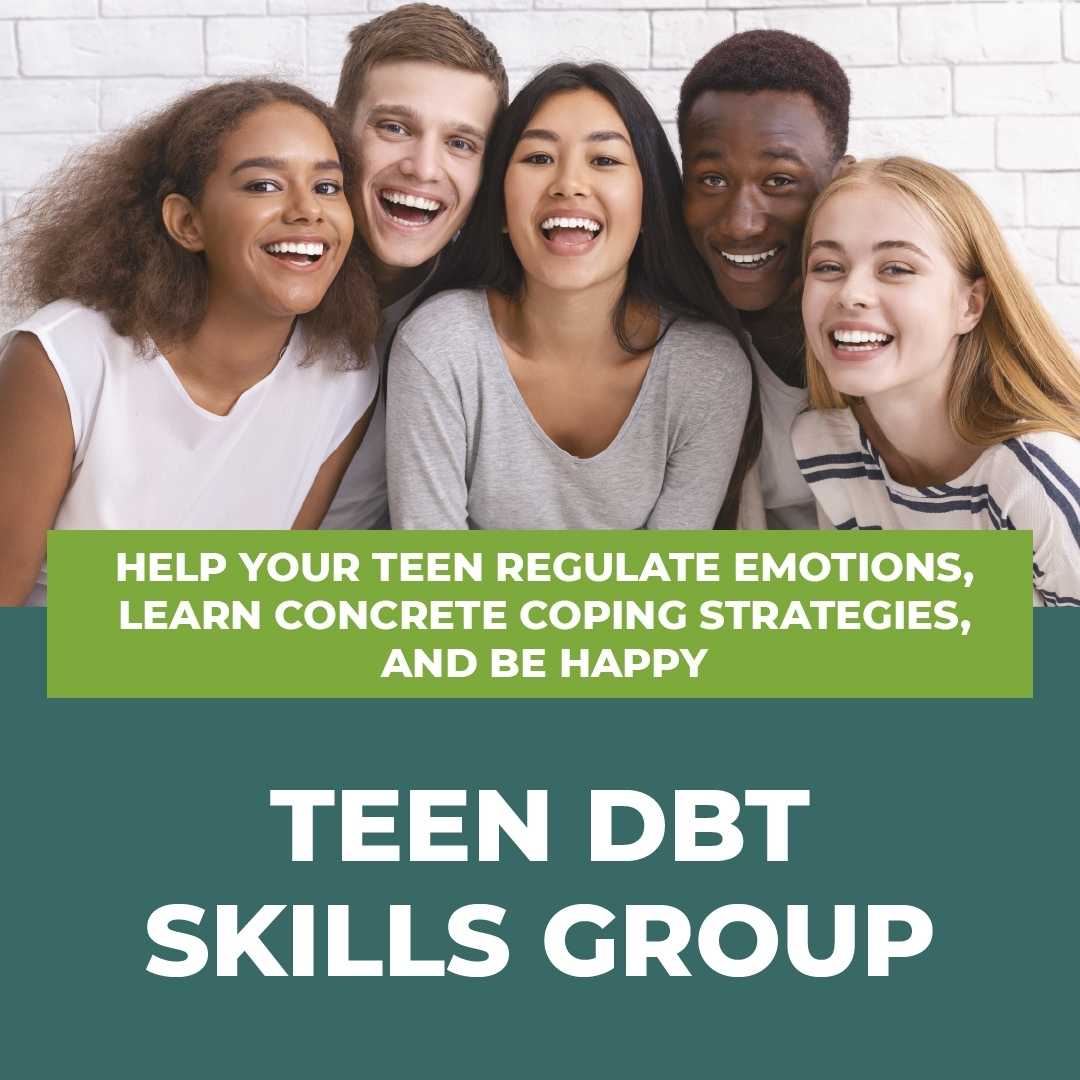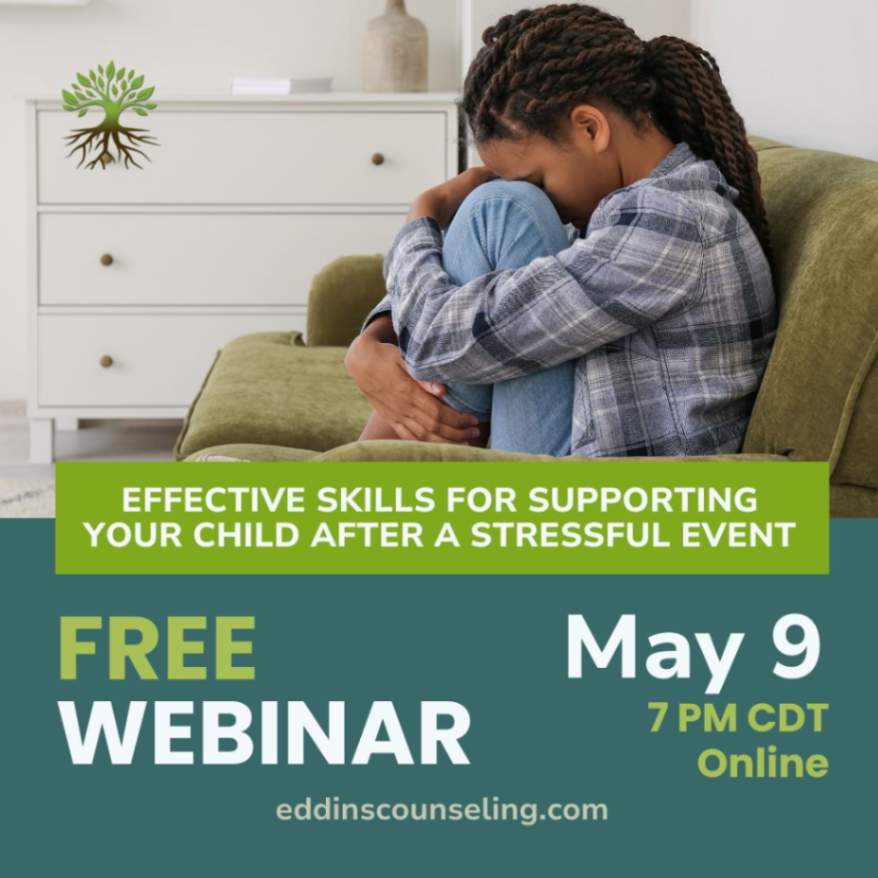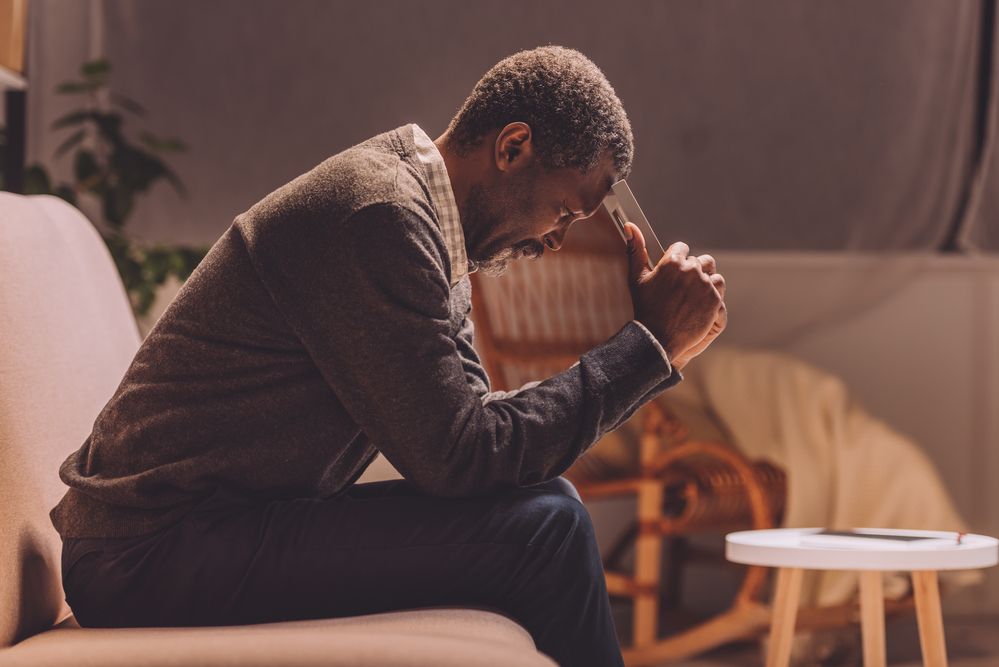December 5, 2022
7 Digital Tools to Reduce Stress and Anxiety at Home
Written by Guest Author
Posted in Emotional & Mental Health and with tags: Anxiety, stress management, stress vs anxiety, stressed
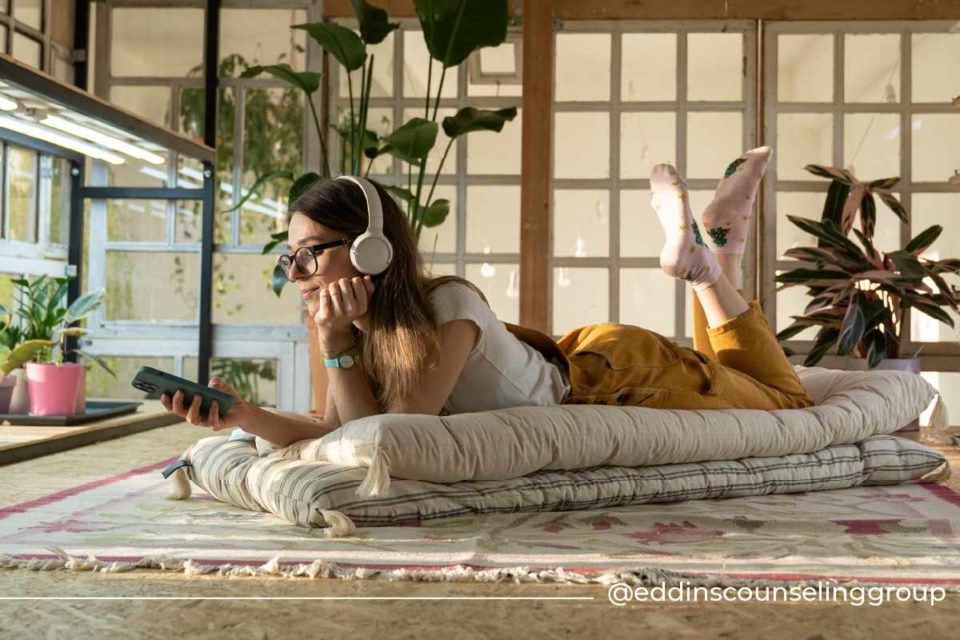
Did you know that 6.8 million adults in America suffer from an anxiety disorder?
We live in a stressful, fast-paced world where advances in technology have only upped the game. With a phone in your pocket and a computer constantly buzzing with new emails, it can feel impossible to switch off properly.
But, the digital world doesn’t have to jeopardize your mental health.
You can use technology to improve your state of mind, easing anxiety and stress from the comfort of your couch. To help you get started, we’ve put together seven amazing digital tools to make your everyday life calmer, healthier, and happier. Let’s dive in!
1. WorryTree
WorryTree is a fantastic tool for sufferers of anxiety and is available worldwide. It’s recognized by professional health institutions as well as being tried, tested, and loved by people prone to worrying. If you suffer from anxiety, this app is a must!
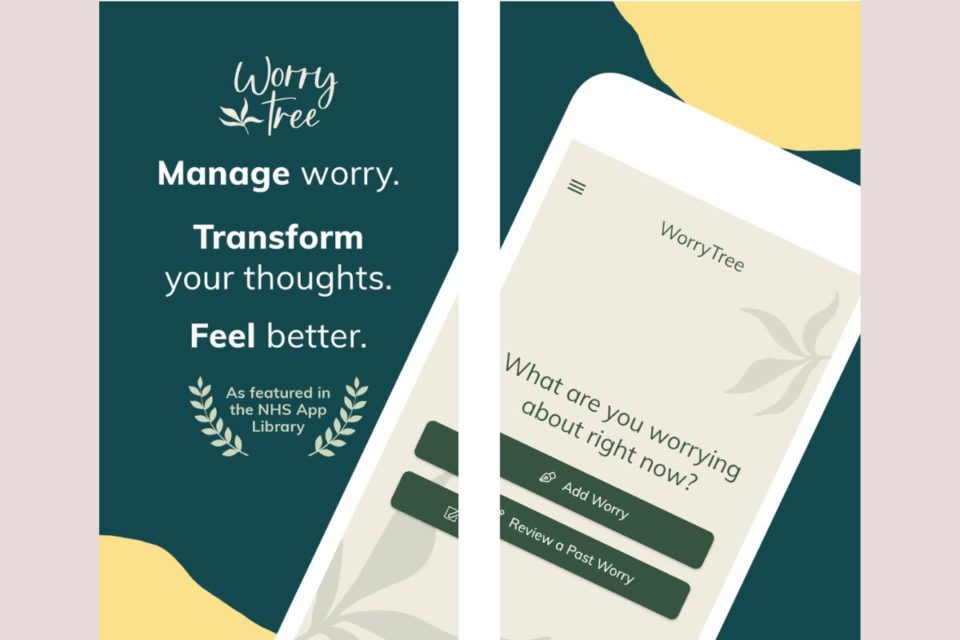
WorryTree’s tools can work alongside Cognitive Behavioral Therapy (CBT), a common form of therapy used by anxiety treatment centers to rewire negative behavior patterns and uncover the root causes of mental illness.
Using the same ethos, WorryTree claims to:
- Manage worrying
- Build your confidence
- Create positive thinking habits
The tool itself is designed to help you catch anxious thought patterns, challenge them, and eventually find methods of solving them or coping with your worries. Every day, it encourages you to enter at least one worry or negative thought you’ve had.
For example, you might be stressing about a meeting or presentation at work. When the app’s reminder goes off, you can take a minute out of your day to write down how you’re feeling about the task, why you’re feeling it, and what you can do to resolve your stress.
It’s a simple formula, but one that’s backed by CBT professionals and therapists around the world.
By simply writing down your feelings and getting them out of your head, you give yourself time to feel the emotions behind them.
This is vital to dealing with anxiety and stress, letting you dig deep into your fears. Once you’ve got them out of your head and into your phone, it can also be easier to let them go.
The premium version of WorryTree comes with a gratitude journal and guides to help you deal better with anxiety. These aren’t essential to benefit from the app, but if you’re enjoying the free version, it could be worth looking into.
2. Moodfit
Moodfit is one of the best all-around mental health apps out there, but it’s particularly good for sufferers of stress and anxiety. With a range of customizable tools to suit your needs, Moodfit treats mental health as unique to each individual – as it should be!
It aims to help you:
- Implement positive daily habits to reduce stress and worry
- Understand your triggers
- Help you focus on your wellness goals
- Question negative thought patterns
- Work through obstacles created by stress and anxiety
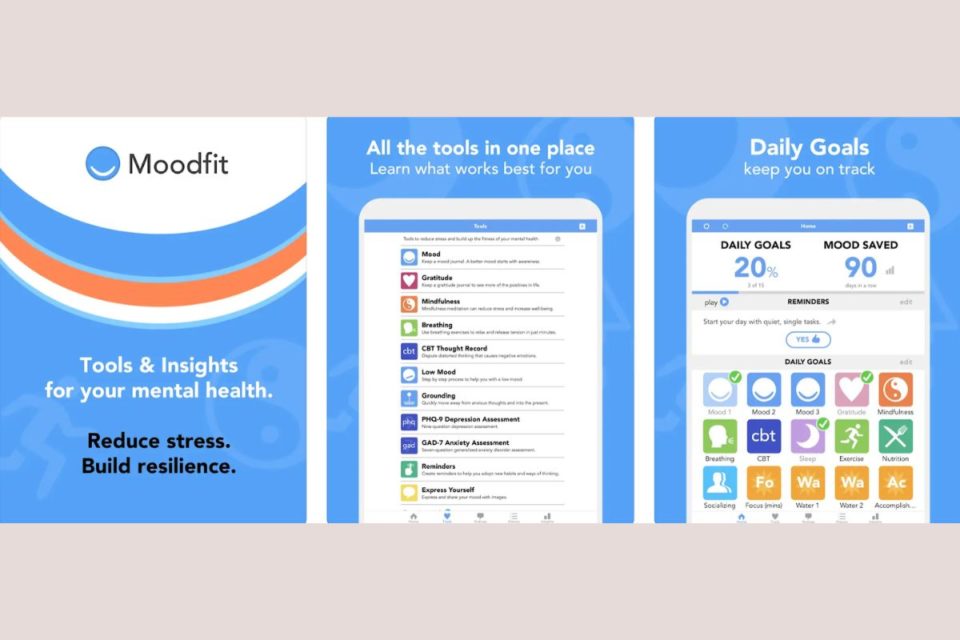
It has a wide range of features you can use to achieve your goals, such as a mood journal, self-care reminders, breathing exercises, and sleep/lifestyle tracking.
The app is designed to be used alongside therapy (including CBT), and you can share mood charts with your therapist to keep them updated with your progress between appointments.
There’s also a handy medication reminder, taking one more worry off of your shoulders!
Moodfit is wonderful for encouraging self-reflection and monitoring your state of mind.
When life gets stressful, it can be hard to see yourself from the outside. With this app, you can do just that whilst also accessing tools to help you through tough times.
It also aims to:
- stabilize your mood,
- help you respond better to difficult situations, and
- encourages you to focus on personal growth.
For anyone suffering from mental health issues, we recommend giving MoodFit a try.
3. Freedom
Compulsive phone use is a key trigger for stress and anxiety. The digital world is full of stimulation, which can be a nightmare when you’re already feeling overwhelmed.
Being able to tune out the digital noise is a must if you want to feel calmer…
… which is where focus and website-blocking apps, like Freedom, come in.
Focus apps can make your digital device (or certain areas of it) unusable for periods of time. Even if you pick up your phone to start scrolling through Instagram or check your emails, you won’t be able to!
It’s a fantastic way to break digital addiction, reduce distractions whilst you work, and encourage you to spend more time away from technology.
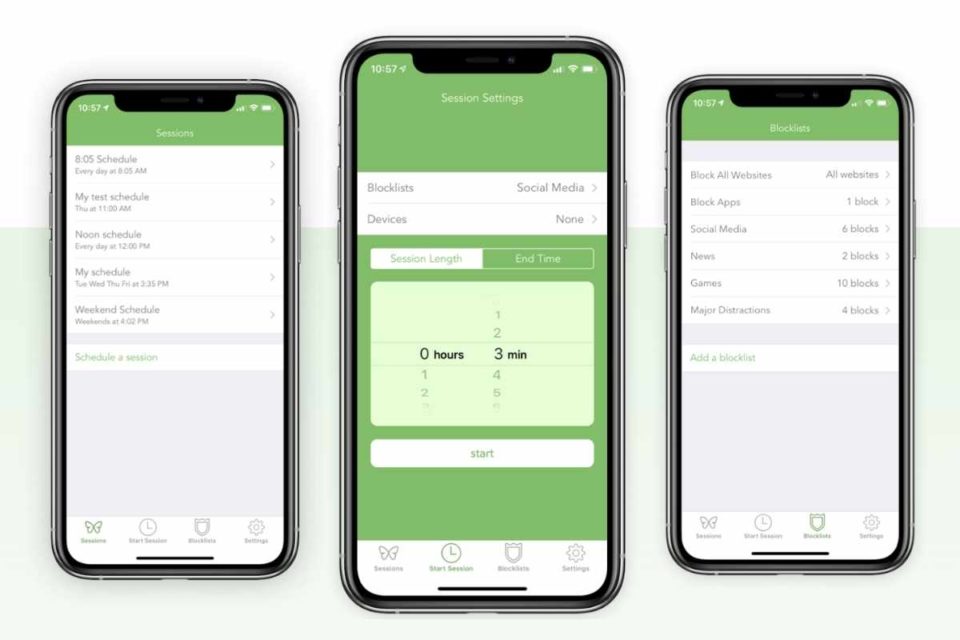
We love Freedom in particular because it can work across all of your devices.
You can block websites and apps across your phone, tablet, and computer, creating a digital blackout in the areas you choose. It also has an option to play ambient music and sounds, encouraging you to focus and inducing calm.
If you’re guilty of working your way around your good intentions, you’ll also benefit from lockdown mode. This makes it impossible to change which apps and websites you’ve blocked during the focus period, ensuring you stick to your goals regardless of willpower.
When the digital world overwhelms you, Freedom lets you block it out. In our books, that’s a mental-health must-have.
4. Alan Mind
Alan Mind (previously Jour) is a digital tool that combines two amazing purposes for sufferers of anxiety or stress: planning your day and journaling your thoughts. There are a lot of studies showing that to-do lists can improve mental health.
Organizing your daily tasks adds structure and routine to your life, as well as allows you to get your thoughts out on paper (or a digital screen, in this case) and focus on important goals one at a time.
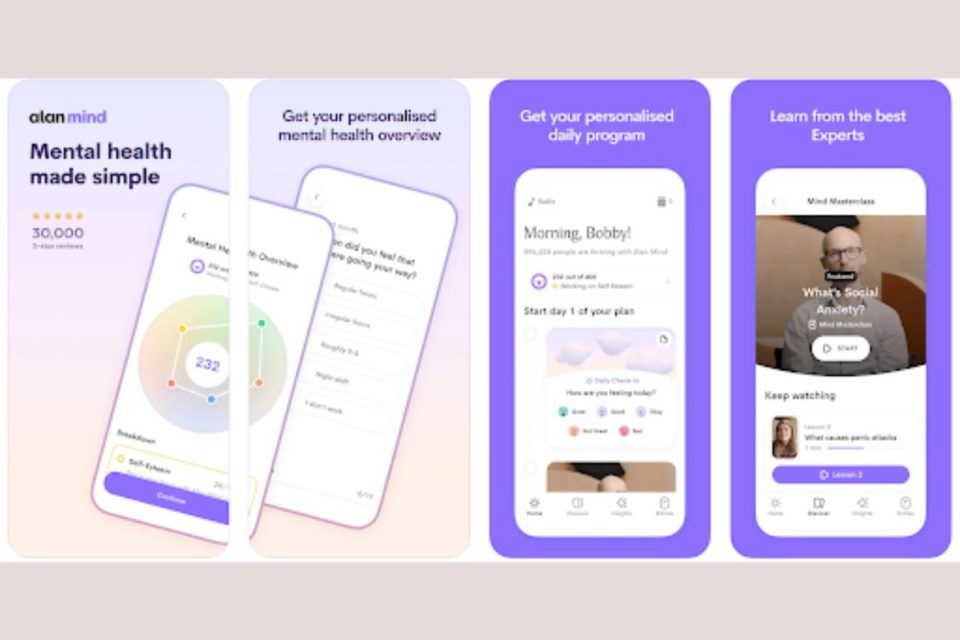
Meanwhile, journaling allows you to identify your concerns, track your mental health, and control your thoughts.
Sometimes, writing your worries down can be enough to put them in perspective and remove their power.
Alan Mind allows you to reap the benefits of both of these. A guided journal, daily planner, and self-help tool, it simultaneously encourages you to let go of negative feelings and focus on what’s important.
If you’ve never tried journaling, the guided feature will be super useful. It teaches you how to journal with a huge range of prompts to help you get your feelings out and removes the fear of getting started. This isn’t just about daily worries, either, but trauma throughout your life that could have contributed to your current anxiety.
Keep track of your life and mental health with Alan Mind, an app that could transform how you tackle your days.
5. HeadGear
Have you ever done a 30-day fitness challenge? These programs are designed to kickstart your fitness journey, focusing on building new habits and fueling quick progress. Well, HeadGear is a fitness challenge, but for your mental health.
Based on evidence-backed psychological processes, like mindfulness, HeadGear is designed to boost your mental resilience – something that’s essential for stress and anxiety sufferers.
The app has even been scientifically proven to treat and prevent depression, showing that it works!
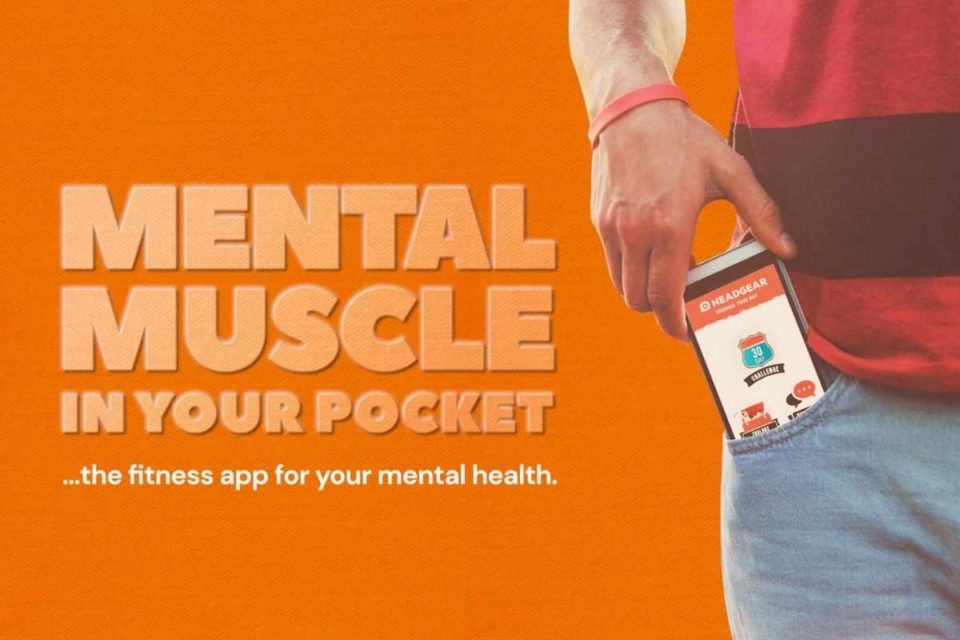
Every day, for 30 days, you’ll carry out practical activities. It’ll only take around 5-10 minutes of your time, and you’ll be working on skills to help you:
- Relax
- Manage stress
- Improve sleep
- Deal with difficult situations
- Connect with others
There are also useful videos and audio that explain strategies to support mental health for a happier, calmer you. Personalize the app to work on your unique goals, and improve your mindfulness and relaxation to boost your mental fitness.
Do be aware that this app is skewed towards a male audience. However, it can help people of all genders to overcome mental obstacles and reduce their worries.
6. Calm
How can we talk about digital tools for anxiety and stress without mentioning Calm? This is, without a doubt, one of the most popular apps for anxious people and has gained global recognition for its mental health benefits.
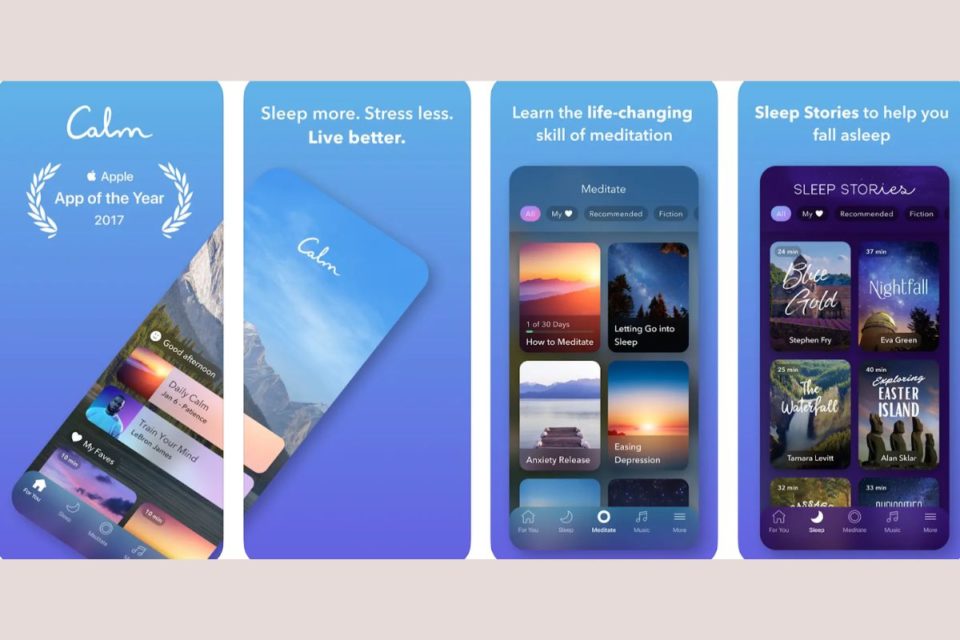
The entire app is geared toward helping you meditate and sleep better. Meditation has a huge array of benefits, including reducing both anxiety and stress, and can also help improve your self-awareness and allow you to focus on the present.
Almost 85% of people using Calm five times a week saw an improvement in their mental health, showing just how transformative this digital tool can be.
The entire app revolves around guided and unguided meditations, which don’t have any religious or spiritual overtones. These follow the Mindfulness-Based Stress Reduction (MBSR) techniques to help you manage stress, fear, and anxiety.
The meditations are divided into categories, including:
They also have specific meditations for beginners, helping you ease into the world of meditation if you’ve never tried it before. You’re encouraged to begin with “7 Days of Calm” before proceeding to “21 Days of Calm” to build up your skills. The app also features breathing exercises, tools to help you sleep, and relaxing music. In a loud world, it provides a little space of calm.
7. Any.do
A huge aspect of reducing daily stress and anxiety is organization. Staying organized can decrease cortisol levels (the stress hormone) and leave you feeling more in control of your life. If you’re often forgetting tasks and running past deadlines, a digital calendar, like Any.do, is a must!
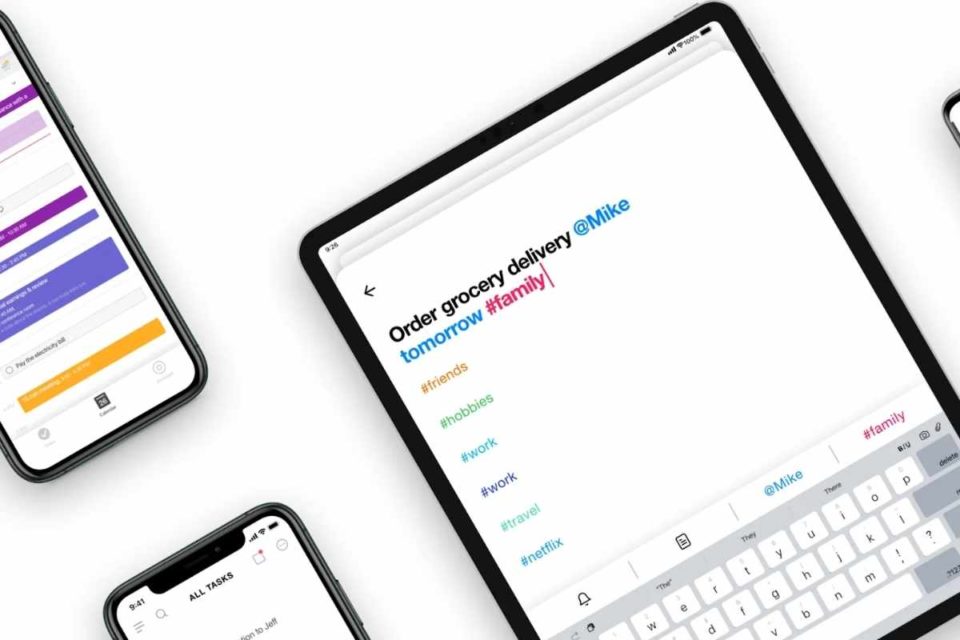
By using a digital calendar, you can easily edit and view your schedule, as well as share it with others. You can also take it with you everywhere you go – or everywhere you take your phone, at least – and stay on top of your tasks all day, every day.
Any.do is a popular choice when it comes to calendars. With millions of users and a few awards under its belt, it’s the go-to for anyone looking to focus their schedule and organize their life. Color-code your tasks, track your progress, and view your days, weeks, and months in different formats, making it easy to stay ahead.
Other great features include being able to:
- Set reminders and notifications
- Share tasks
- Categorize your tasks
- Set locations
- Repeat tasks on certain dates
One area of the app we love in particular is its intelligent grocery shopping list. Using AI technology, Any.do suggests groceries it thinks you’ll need based on previous lists and what you’ve already added, making it almost automatic to write up your list. You can also import recipes from around the web and share lists, making it easy to delegate the task of picking up groceries.
More than just the features, though, Any.do is incredibly easy to use.
Designed with simplicity in mind, it’s intuitive and simple to navigate. You won’t get bogged down in overly complex interfaces that are focused on being showy rather than practical, and you can add a task on the go without fuss! When you’re trying to reduce stress, not increase it, a no-frills calendar is a must.
Final Words
Stress and anxiety are on the rise around the world. The fast-paced lifestyles we live aren’t always the best for mental health, and it’s time we all re-focused our attention on wellbeing. With these top picks of digital tools, you can do just that! Give them a try and see how they improve your day-to-day life.
Next Steps
If you or a loved one are interested in working with a therapist, either in-person or virtually, call or text us today to set up an appointment. We’ll do our best to match you with a “right fit” therapist in Houston, Montrose, or Sugar Land who can help you with stress management and anxiety.
Call us (832) 559-2622 or text us (832) 699-5001 to get started today. We look forward to talking with you soon.
About the Author
Sophie Bishop is a medical journalist. Sophie aims to spread awareness through her writing around issues to do with healthcare, wellbeing and anxiety and is looking to connect with an engaged audience. Connect with Sophie on Twitter: @SophBishJourno
Grounding & Self Soothing
Get instant access to your free ebook.
Why You Feel This Way
Get instant access to your free ebook.



